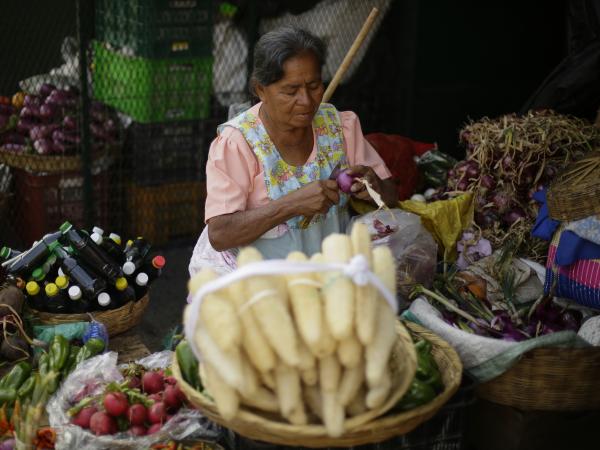The Dane recently conducted an analysis of data on household decision making and bargaining power from a series of questions that were included in the National Survey of the Use of Time.
(Read: Most of the unpaid work in the country is done by women).
“The ability of a person to influence a decision, so that their preferences are taken into account, depends on their bargaining power within the home.said the economist Nalia Kabeer in 2005. And her premise continues to be true.
44.8% of opposite-sex couples in the country are made up of a woman who is unemployed and a man who is employed. The result is that 43.4% of these couples, the man is the only one with income. 15.5% of the man has more income than the woman and only 5.6% is the other way around.
However, 39.3% of women consider that they decide as a couple if they should have a job in contrast to 32.8% of men. On average, 19% of men and women believe that a change in personal appearance is decided as a couple.
He 14.5% of men believe that it is up to them to decide to ask for a home loan, only 6.9% of women considers that this is a decision that should be made only by them. 6.8% of them, in contrast, consider that this should be done by a man.
(Read: Only 38% of women study careers such as science or mathematics).
The Dane shows that the gaps are felt more strongly in populated centers and dispersed rural areas. For example, in these areas, 11.2% of men decide on financial investments in the homethe headers is 7.7%.
78.9% of men in rural areas decide individually about personal appearance, 83.6% about whether to be someone’s friend.
Although most people say that financial investment decisions for the home are made with their partner, busy men and those outside the labor force more frequently say that 8% make decisions individually, compared to women with 4%.
The study also showed that as education levels increase, the gender gap in the percentage of individual decision makers narrows across all dimensions.
(Keep reading: Women in Colombia suffer more from poverty, why?).
It even gets reversed. That is to say, women with higher education make more decisions alone than men with the same level of education.
This is linked to the fact that 11.6% of men strongly agree and 7.5% agree that they should be the heads of the household.
“There are today situations, barriers, positions and social conditions (own income, property rights to real estate, education, support networks) which affect people having different bargaining powers compared to others“, explains the Dane.
Experts have said that these types of beliefs and dynamics in the home are a way of perpetuate gender gaps in the country.
“Gender gaps are perpetuated by cultural issues, which start from the same training that implies that women can and have the skills to study any career, encourage greater interest in STEAM careers, favor equal learning environments between men and women , showing the potential of women in any activity, being able to work as a team between men and women without stigma and bias,” says economist Clara Inés Pardo.
MARIANA GUERRERO
Portfolio Journalist

















